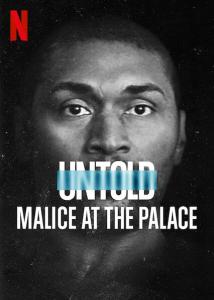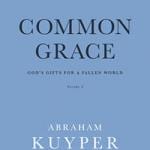
On November 19, 2004, a brawl erupted at an NBA game in the Palace in Auburn Hills (home of the Detroit Pistons) between visiting Indiana Pacers players and Detroit Pistons fans. I’m having trouble deciding if that is a newsworthy statement or not. Obviously in one sense it is–there are hundreds (thousands?) of basketball games every year that do not involve the police, ambulances, or the District Attorney. One that does should be noted, and maybe even have a Netflix documentary made about it. And yet in another sense it isn’t, because while the vast majority of basketball games in the nation do not involve a brawl, enough do end in violence that it’s not the sort of thing that shocks and surprises. Whether it’s a fight on the floor or a riot afterwards, American basketball has the aroma of English soccer around it at least to some small extent.
And yet again it is different to have a fight break out between players and fans. So maybe we’re back to “newsworthy” after all. What’s really surprising is that this doesn’t happen more often, given how close the two are at all times. Most sports put some kind of distance between the game and the spectators (heck, hockey puts up a giant plexiglass wall), but in basketball the players and the fans are in close contact through the whole game. Add in the fast-paced/high-intensity action of basketball, and something is going to happen from time to time. Thanks to the first episode of Netflix’s new series Untold, you can now see in all its detail the “Malice at the Palace”, where two Indiana Pacers players jumped into the stands and attacked Detroit Pistons fans, which resulted in a full-blown chaotic melee that ultimately involved suspensions and fines for players and legal charges for everyone who joined in the fight.
Malice at the Palace is a clear attempt to follow in the footsteps of ESPN’s success with 30 for 30. And yet, it also has a very different feel to it than the earlier ESPN show. Instead of giving the big-picture overview, digging into the personal past of the players (in fact, the background of the players is almost never mentioned in the Netflix show), and dealing with the socio-economic components of the event, almost the entire story is told from two parallel perspectives: the mentality of the players involved and the setting of the 2004 Indiana Pacers team. Everything is filtered through these two lenses, which gives the whole episode the feel of both a tragedy (a repeated theme is that Reggie Miller never got to win a championship, and this was the season the Pacers may very well have made it if not for this event) and of a psychological study of young athletes under intense pressure. We are walked in detail through what they were thinking before, during, and after the fight–particularly as the media exploded with accusations of ‘thuggery’ and calls for the reformation of the sport. These two filters come together, albeit only for a moment, in the decision of the NBA Commissioner to punish the athletes involved, thus tanking the Pacers’ shot at the championship and obviously directly affecting the athletes themselves.
Clearly there are a lot of things here for us to reflect on–perhaps beginning with whether we ought to be turning violence into sensational commercial entertainment (which of course is exactly what this and similar documentaries are doing, regardless of how respectful they are of the subject matter–and Untold is respectful). Even what’s omitted is worth noting–there is little to no mention of substance usage or abuse by players (other than a few passing lines about marijuana usage by one player and alcohol consumption by another). Likewise racial tensions are dealt with obliquely rather than directly–though it’s certainly understandable that Netflix doesn’t take this path in today’s cultural climate. Related to that, we also learn very little about the players’ personal backgrounds and who they were before they were in the NBA (family life, education, etc.). It’s an interesting and unique approach that works well, and is worth keeping an eye on if it is used and holds up in future episodes.
I think as a Christian this documentary is especially interesting. We have a lot of parallels with sports (I’ve heard it said, mostly in sermons on Superbowl Sunday, that sports is America’s real religion in any case): we have large gatherings where emotions run high, often around or because of charismatic or influential figures in whom we are heavily emotionally invested; we relate to others in the gathering in a unity that excludes those outside and includes those who are part of ‘the team,’ often regardless of socioeconomic status; we have ceremonies and rituals that seem strange to others but are essential to us; etc. But are we doing these things well? Whether in sports or in religion, there are times when things have gone awry and the result is something nobody really wanted to see and we wish hadn’t happened.
Unlike the American sports industry, Christians have a guidebook that should help us avoid these situations. Events like the “Malice at the Palace” should return us to that book and cause us to prayerfully re-trench our gatherings in God’s Word and around His Gospel. We’re all sinners and we fail to follow the Bible as we ought, but even in that failure we know that there’s a standard to which we ought to live. This is a reminder to us that we need to keep an eye on our institutional cultures and how we live as a body of believers. (No doubt there are similar things that can be said about the NBA, but as someone who doesn’t follow professional basketball I’m not the person to say them.)
All that to say, you should watch Untold: Malice at the Palace and think carefully about what you see.
Dr. Coyle Neal is co-host of the City of Man Podcast and an Associate Professor of Political Science at Southwest Baptist University in Bolivar, MO












